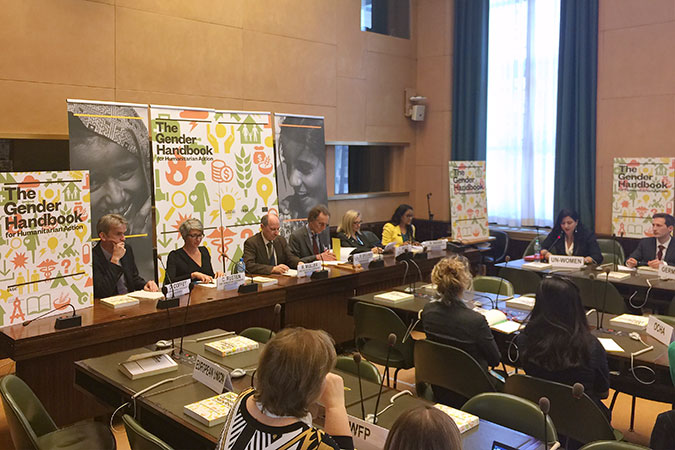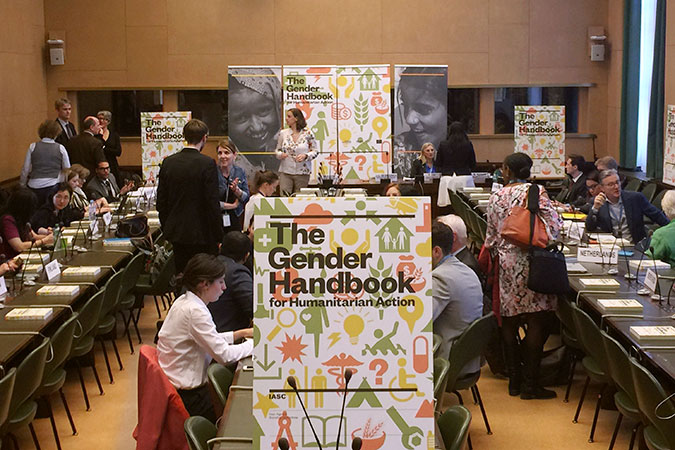Gender Handbook for Humanitarian Action launched to improve humanitarian response worldwide
Date:
On 17 April, the Inter Agency Standing Committee (IASC), an inter-agency forum on humanitarian action, the European Civil Protection and Humanitarian Aid Operations (ECHO) and UN Women co-hosted the launch of the “Gender Handbook for Humanitarian Action”, a practical tool that provides guidance to frontline humanitarian workers on how to integrate gender equality and the empowerment of women and girls throughout the humanitarian action cycle.

With 128 million people in need of humanitarian assistance, 65 million people displaced and the average length of displacement being 17-25 years, crises have become the ‘new normal’. Crises affect women and men, boys and girls differently, and women and girls are disproportionately affected in terms of reduced access to livelihoods, education and health and the threat of sexual and gender-based violence. Yet, when crisis strikes, humanitarian response has not always factored in these differential impacts. Without specific guidance, tools and know-how, humanitarian action run the risk of being gender-blind.
Adapting to the shifting landscape of humanitarian work, UN Women and its partners are committed to putting gender equality at the core of facilitating humanitarian response. Gender equality and women’s full participation in leadership and decision-making are fundamental to humanitarian action and for addressing the needs of all affected people of different ages and abilities.
The Gender Handbook is the culmination of three years of collaborative and consultative work, complemented by a suite of e-learning and training materials, and is being translated into Arabic, French and Spanish. This handy compendium is crucial for accountability, shining a light on the roles and responsibilities of people at every level of humanitarian action. The Handbook also paves the way forward to ensure that collective commitments made by humanitarian actors to the Sendai Framework, the Grand Bargain, the World Humanitarian Summit, the New Way of Working and the IASC Gender Age marker, lead to tangible changes on the ground.

At the launch event, Nazmun Nahar, Gender Justice Programme Manager for Oxfam Bangladesh, shared the work that Oxfam has been doing with the Handbook in Cox’s Bazaar, the scene of unfolding Rohingya crisis, by mainstreaming gender and protection into the humanitarian cycle, providing training and structured discourse to gain cooperation from the Government and the community.
In a quest to make the guidance practical and user-friendly, this revised edition of the IASC Gender Handbook incorporated the feedback of more than 250 humanitarian actors worldwide, including government entities; donors; United Nations agencies; and international and national non-governmental and civil society organizations. Additionally, technical contributions were provided by members of the sector leadership system of the IASC and a host of gender specialists.
7,000 copies of the handbook have been distributed to OCHA’s regional offices worldwide in English, French, Arabic and Spanish. Download the online version in English here.
A navigable online version in all four languages, with access to the print files, associated training materials and e-learning course will be available in the coming months. The handbook was developed with generous funding provided by the European Civil Protection and Humanitarian Aid Operations (ECHO).